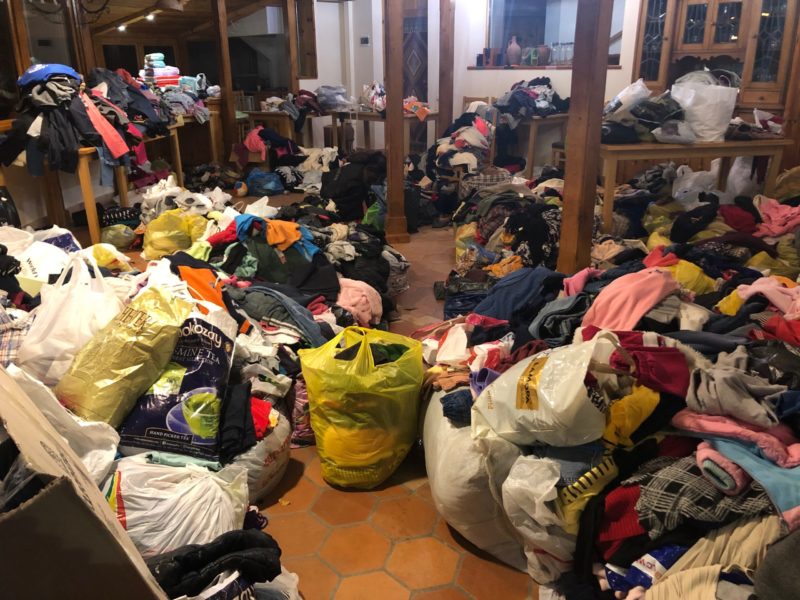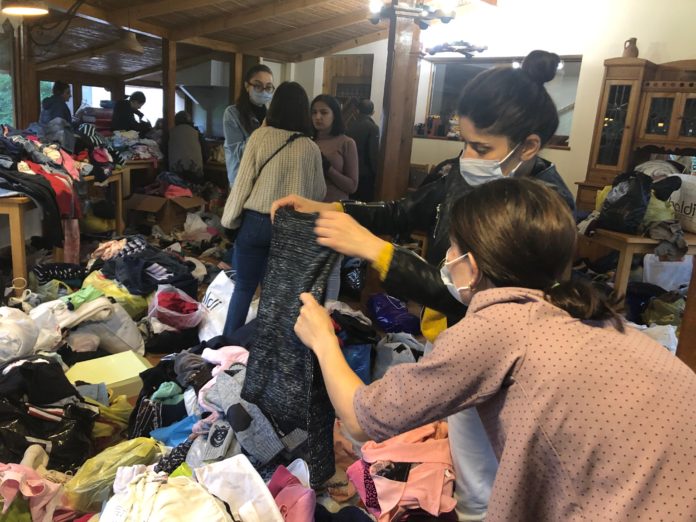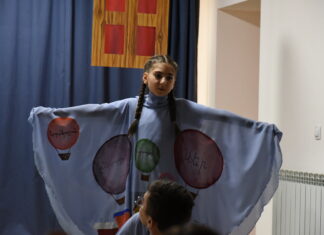As women and children pour in from Artsakh into eastern Armenian cities such as Goris, local hoteliers and residents stand ready to house, clothe, and feed them.
GORIS, Armenia – In the wake of renewed hostilities in Artsakh, scores of refugees have taken flight across the border into Armenia to escape the fighting. Predominantly women and children, these refugees come principally from communities such as Martuni, Berdashen, and Mghanz, all of which lie close to Artsakh’s border with Azerbaijan. Most of these families have been forced to leave quickly, leaving behind their homes and many of their belongings. In addition, these families had to flee Artsakh without their fathers and adult male relatives that have stayed in Artsakh to fight.
Some of these displaced families have found refuge in cities such as Goris. In anticipation of a refugee influx, Goris’ municipal government prepared to accommodate people from Artsakh. Hotels were instructed to prepare their facilities to receive incoming families, and arrangements were made so that Goris residents could easily donate food, clothing, and other necessities to families from Artsakh. Local efforts, including food drives, and donation drives to purchase clothing and other goods are being undertaken.
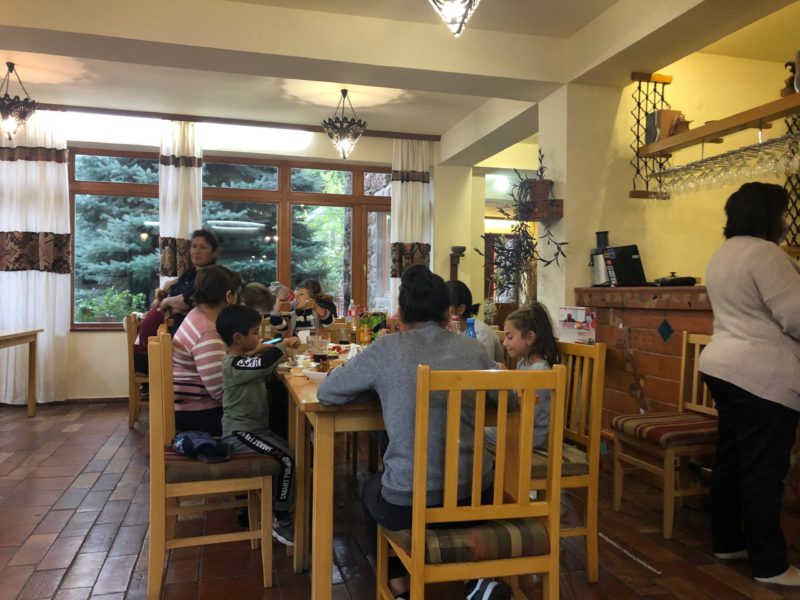
Shahen Zetuntchian, the proprietor of Goris’ Mirhav Hotel, was one of the hoteliers charged with hosting and providing for incoming refugees. Zetuntchian is a hayrenadarts, a member of the diaspora who has returned to Armenia. “The evacuees [from Artsakh] are under mental and physical stress, which they have lived with for years. So, they need a lot of help and solidarity.” explained Zetuntchian. “Artsakh is part of Armenian history, and it is necessary for us to push for the recognition of that fact,” he added.

Zetuntchian recognized the important role played by hotels in housing refugees. However, he stressed that housing evacuees in hotels is only a temporary solution: “Many children here are in a bad situation. They have endured shock and emotional stress, and they will require more care and support than a hotel can provide.” This was a sentiment shared by Gayane Martirosyan, the hotel’s manager, who added: “We also have a concern that if we have a problem [in Goris], how will we evacuate people from here?”
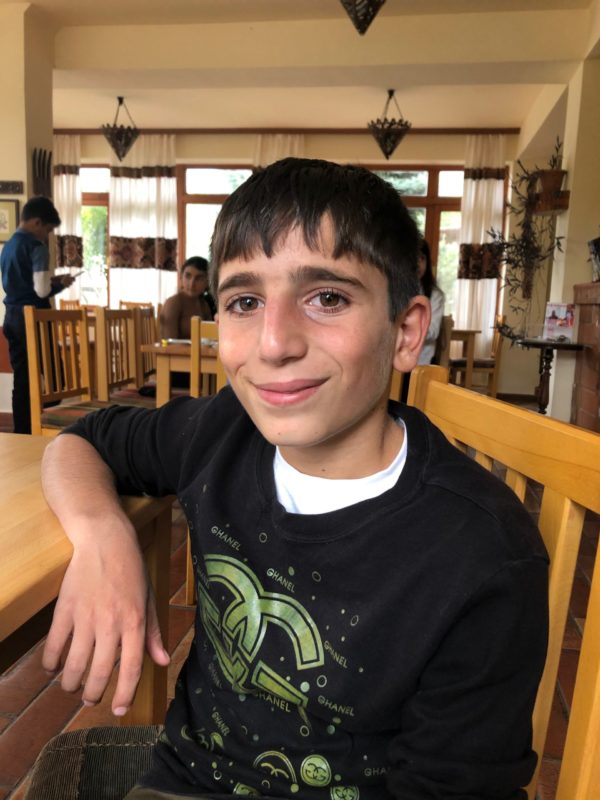
Zetuntchian also pointed to the long-term challenges of keeping everyone adequately fed but expressed his appreciation that the “people of Goris and neighboring villages have been very helpful, bringing clothes, food, and other necessities.” The hotelier also pointed to the good work done by the local government to organize donations and accommodations for refugees. Martirosyan agreed that the local government had been quite active but opined that the national government needed to do more to match government efforts at the local level.
